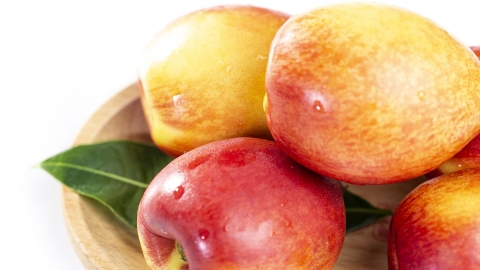Can peaches alleviate menstrual discomfort?
Generally speaking, nectarines can help alleviate menstrual discomfort to some extent, but they are not effective for all types of menstrual discomfort, and their effects may vary from person to person. Detailed analysis is as follows:

Nectarines are rich in nutrients such as vitamin C, vitamin E, and potassium. Vitamin C and vitamin E have antioxidant properties that can help reduce inflammatory responses and fatigue during menstruation. Potassium helps replenish electrolytes lost through menstrual bleeding, maintaining the body's fluid balance and alleviating discomfort such as swelling and fatigue that may occur during menstruation. Additionally, the sweet taste of nectarines can provide energy and help improve energy deficiency caused by poor appetite during menstruation.
Nectarines cannot effectively relieve severe dysmenorrhea or abnormal menstrual flow that occurs during menstruation. These symptoms are often related to factors such as endocrine disorders and organic uterine diseases, and require targeted treatment and regulation. Moreover, different individuals have different body constitutions, and their absorption and response to the nutrients in nectarines may vary. Some people may experience significant relief after consumption, while others may not notice any obvious improvement.
During menstruation, nectarines should be consumed in moderation, as excessive intake may increase the burden on the gastrointestinal tract, causing discomfort such as bloating and diarrhea. At the same time, fresh and ripe nectarines should be selected, and refrigerated nectarines stored for long periods should be avoided to prevent worsening of menstrual discomfort due to cold exposure. If menstrual discomfort is severe and affects normal life, timely medical consultation and professional treatment are necessary.








